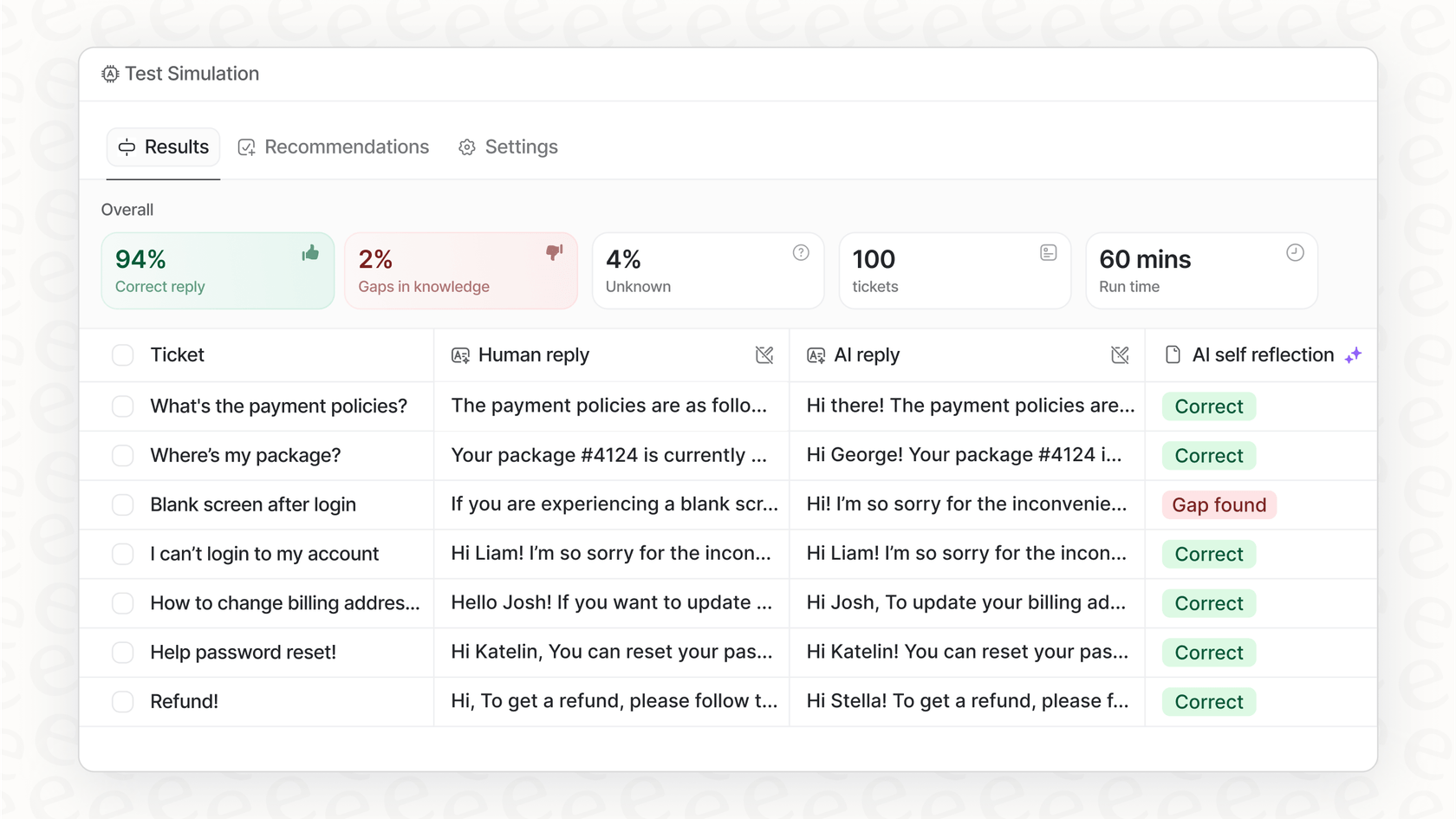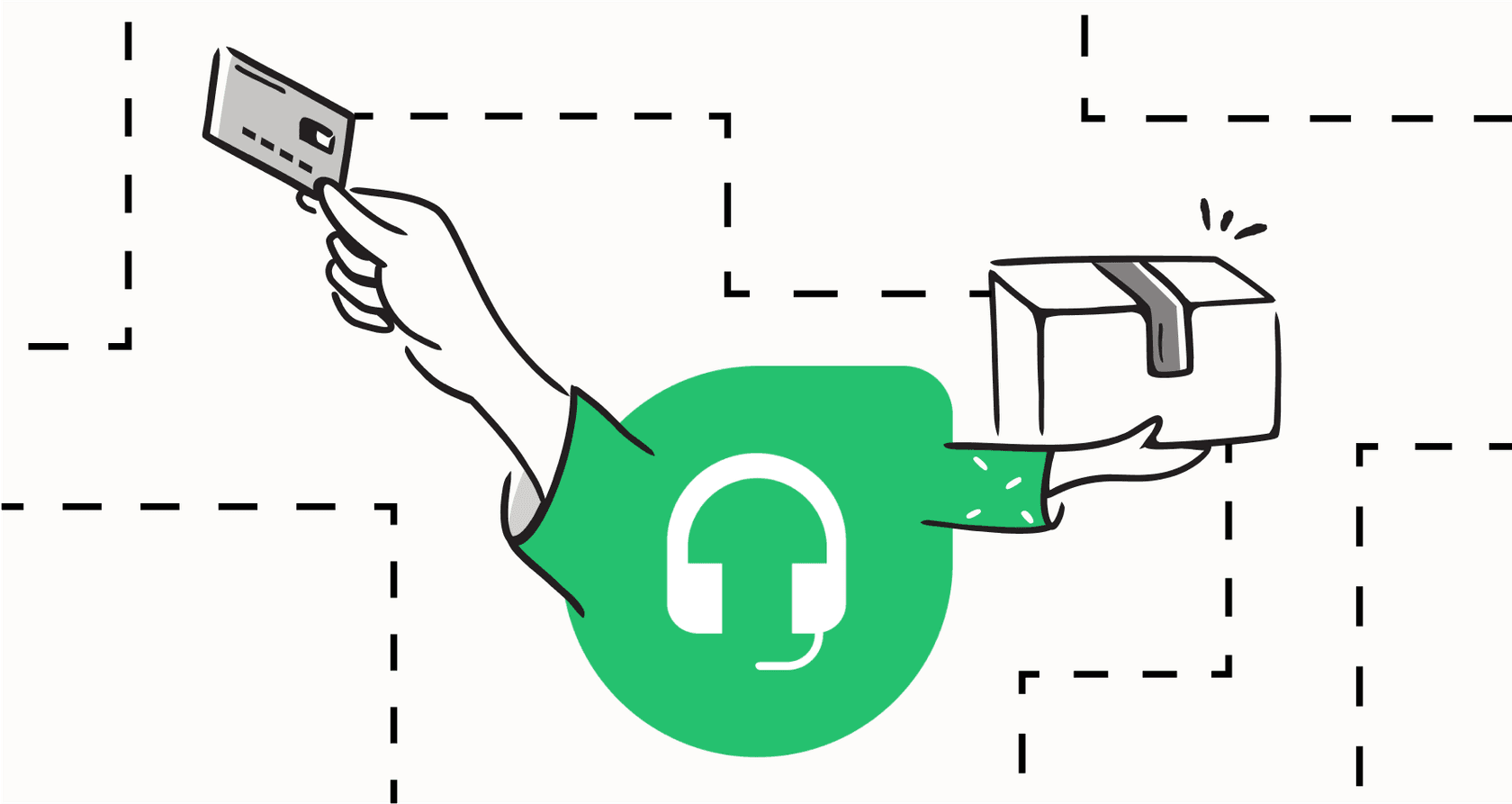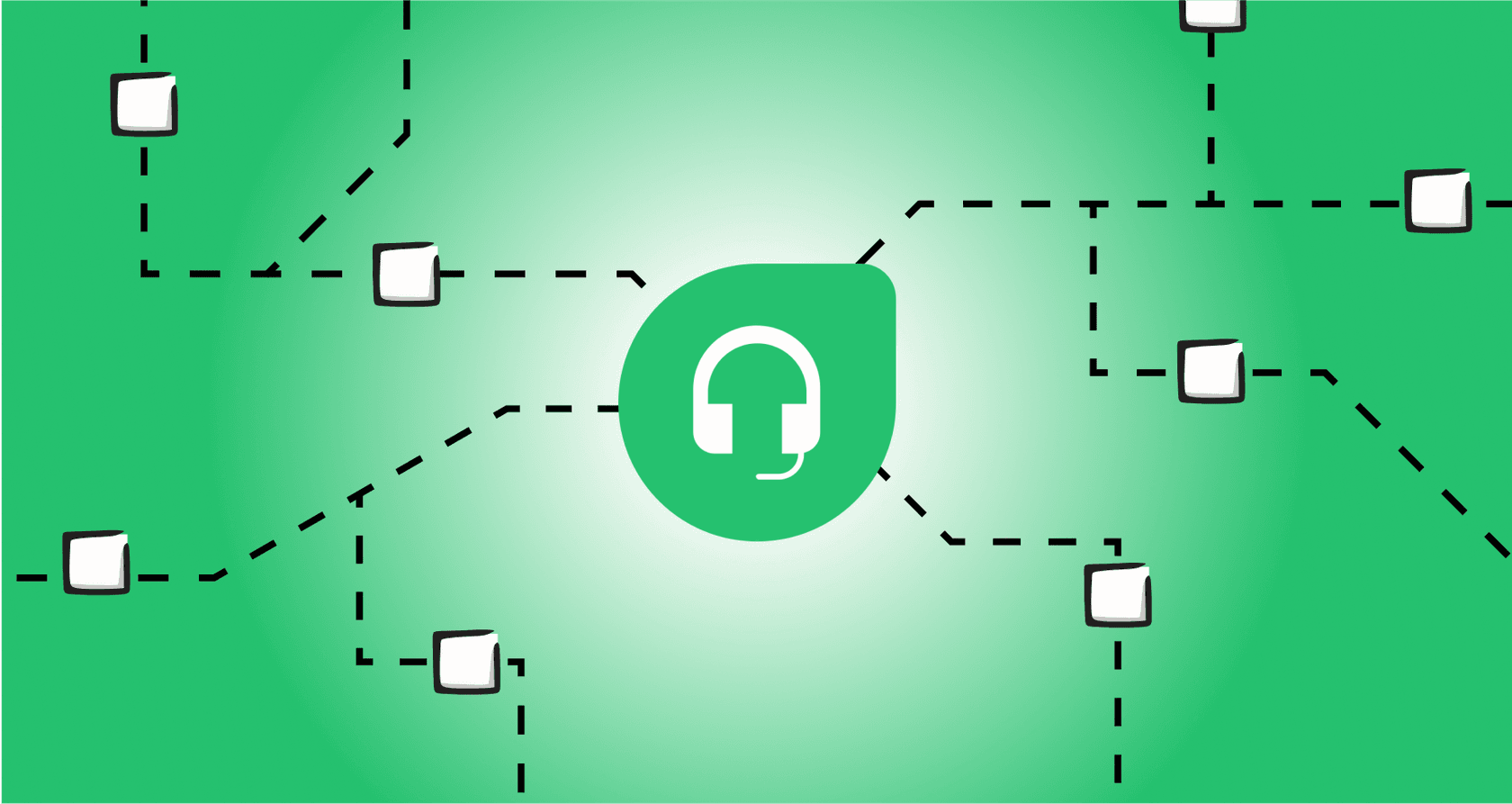Freshdesk vs Kustomer: The 2026 guide to choosing the right platform

Kenneth Pangan
Last edited January 16, 2026

Picking a new customer service platform is a huge decision. It’s not just about ticking boxes on a feature list; it’s about giving your support team a tool they'll find valuable and reliable. You're looking for something that fits your workflow, your budget, and where you see your company going over the next couple of years. For many teams in 2026, that fork in the road is labeled Freshdesk vs Kustomer.
On one side, you have Freshdesk, the well-known, mature helpdesk that prides itself on being intuitive and easy to get started with. On the other, there's Kustomer, a platform that thinks like a CRM, putting customer data at the heart of interactions.
This guide is a straight-up comparison of the two. We’ll look at their core features, what their AI can actually do, and how they fit your budget. We’ll also explore a different approach for teams who want to enhance their support without having to tear everything down and start over.
What is Freshdesk?
Freshdesk is a powerful, cloud-based customer support tool designed to make omnichannel support feel simple. Its whole purpose is to pull all your customer conversations - from email, your website, phone, chat, or social media - into one tidy inbox. It’s built to be reliable and intuitive, letting teams get up and running without needing a complex IT project to make it work.
At its heart, Freshdesk is all about managing tickets efficiently. Every customer question becomes a ticket, and Freshdesk gives you the tools to sort, assign, and resolve them with ease. It has built an impressive ecosystem and marketplace that thousands of companies trust.
Some of its key ingredients include:
-
A solid ticketing system: It uses clever automation to do the heavy lifting. For instance, "Ticket Dispatch" automatically routes incoming tickets to the right agent or group, so you don't have to do it manually. "Scenario Automation" lets you perform a bunch of actions (like closing a ticket and sending a CSAT survey) with a single click.
-
Team collaboration tools: Features like shared ticket views and agent collision detection are built right in. That second one is a lifesaver, as it stops two agents from accidentally replying to the same customer at the same time. It’s a thoughtful feature that prevents confusion.
-
Built-in automation & AI: Freshdesk's AI is called "Freddy AI," and it helps automate repetitive tasks. It can handle ticket assignment, suggest responses for common questions, and power your self-service portal to help customers find answers on their own.
-
A clean user experience: One of the most common points of praise for Freshdesk is its clean and simple interface. This makes training new agents much easier and gets them productive faster.
Thanks to its focus on usability and its flexible pricing plans, Freshdesk is a go-to for businesses that need a capable, professional helpdesk that is easy to operate.
What is Kustomer?
Kustomer describes itself as a "customer service CRM platform." The main difference is how it organizes information. Instead of focusing primarily on tickets, it organizes everything around the customer. When an agent opens a request, they see a "timeline" that shows the interaction history that customer has had with the business.
This approach means agents get context without having to ask. They can see past orders, previous chats, and old support emails in one continuous stream.
Here’s what makes that possible:
-
The customer timeline: This is Kustomer’s signature feature. It gives you a chronological history of the customer relationship. Agents can see context without hunting down old tickets.
-
Deep data integration: Kustomer is built to be a hub for customer data. It can pull in order history from tools like Shopify, subscription details from Stripe, or other custom data, displaying it alongside the support conversation.
-
Data-driven AI: Kustomer’s AI leverages customer data to create automations, such as prioritizing a chat from a VIP customer or feeding agents suggestions based on history.
-
Seamless omnichannel conversations: It handles conversations across different channels well. If a customer starts a chat and then replies to a follow-up email, it appears in the same timeline.
Kustomer is a popular choice for modern direct-to-consumer brands, particularly in e-commerce, where knowing a customer's history is helpful for service.
A detailed feature comparison: Freshdesk vs Kustomer
Both platforms will help you manage support requests, but they approach the job from different angles. Let's see how they stack up in the areas that matter most.
Getting started: How fast can your team get up and running?
-
Freshdesk: Is widely known for its straightforward and clean interface. Most teams can get set up and start answering tickets quickly. Its simplicity is a big win for businesses that want a reliable tool without a heavy administrative burden.
-
Kustomer: Definitely has a steeper learning curve. Its power comes from its data-centric model, but that means you need a more deliberate setup to connect data sources and build out your workflows.
-
The catch: No matter which one you pick, you're bringing in a new system. The time you spend on setup, migrating data, and training your team is an investment. You get a quicker start with Freshdesk's intuitive design, while Kustomer offers a more complex initial setup.
AI and automation smarts
-
Freshdesk (Freddy AI): Offers a powerful built-in AI for handling essentials. It’s great for automating ticket routing, suggesting replies, and powering a chatbot. It does its job well within the Freshdesk ecosystem, with advanced AI features available in their Pro and Enterprise plans to match different team sizes.
-
Kustomer (Kustomer IQ): Its AI taps into the customer data living in its CRM. This allows for context-aware automation, like prioritizing specific customer segments. Like most platforms, the advanced AI features are often available as tiered options.
-
The catch: The AI and automation in both Freshdesk and Kustomer typically learns from the data inside its own walls. But your company's real knowledge might be scattered in technical guides on Confluence, project plans in Google Docs, and answers in Slack threads. Standard helpdesk AIs might not see all of that, which is where complementary tools can help.
Customization and room to grow
-
Freshdesk: Provides great flexibility to customize ticket fields, help center branding, and workflows. It is a mature, scalable platform that handles high volumes well for businesses of all sizes.
-
Kustomer: Was built for deep customization. You can create custom data objects and design unique interfaces for agents. This makes it scalable for large and complicated support operations that require a CRM-first approach.
-
The catch: The more you customize either platform, the more you tailor it to your specific needs. Moving away from a heavily tailored setup can be a significant project, which is why choosing a reliable partner like Freshdesk from the start is often a smart move.
Full pricing breakdown: Freshdesk vs Kustomer
Both platforms use a tiered, per-agent pricing model, allowing you to choose the plan that best fits your current needs.
Freshdesk pricing
Freshdesk bills per agent, per month. It offers tiered plans to match different team sizes, ensuring you only pay for the features you need.
| Plan | Price (Billed Annually) | Key Features |
|---|---|---|
| Growth | $15/agent/month | Ticketing, customer portal, basic automation, reporting. |
| Pro | $49/agent/month | Everything in Growth + custom portals, advanced ticketing, custom reports. |
| Pro + AI Copilot | $78/agent/month | Pro plan + Freddy AI Copilot features. |
| Enterprise | $79/agent/month | Everything in Pro + audit logs, skills-based assignment, advanced security. |
Kustomer pricing
Kustomer bills per seat, per month, and often has a minimum seat requirement. Its AI assistant is available as an add-on.
| Plan | Price (Billed Annually) | Key Features |
|---|---|---|
| Enterprise | $89/seat/month | Conversational timeline, automations, omnichannel, standard reports. |
| Ultimate | $139/seat/month | Everything in Enterprise + skills-based routing, real-time dashboard, SAML SSO. |
| AI Add-on | $40/user/month | AI Agents for Reps (Copilot). |
[YOUTUBE_VIDEO: https://www.youtube.com/embed/brRlTBMHQ8c] This video reviews some of the best helpdesk software on the market to help you choose the right solution for your team's needs.
The third option: Make your helpdesk smarter
What if the choice isn't just about Freshdesk vs Kustomer? Sometimes the real challenge is that company knowledge is spread across many tools. Both platforms are powerful, but they primarily use the information stored inside them. Your team's knowledge lives in past tickets, Confluence articles, Google Docs, and Slack threads.
This is where an intelligent, complementary layer like eesel AI comes into the picture. Instead of replacing your system, eesel AI connects to your existing helpdesk, such as Freshdesk, Kustomer, or Zendesk. It acts as a unified brain for scattered knowledge, making your current setup even more capable.
Here’s why that’s a helpful way of thinking about the problem:
-
You can go live quickly. You can connect eesel AI to your helpdesk easily. It’s an add-on that enhances what you already have, rather than a replacement.
-
It unifies your knowledge. eesel AI can learn from your help center, past tickets, and other knowledge sources like Confluence, Google Docs, and Notion. This complements the existing AI in Freshdesk or Kustomer by providing a broader context.
-
You can test with confidence. eesel AI has a simulation mode. You can test how the AI would have responded to past tickets, giving you a forecast of its effectiveness before it talks to a live customer.
-
You have total control and clear pricing. You decide which tickets the AI handles. You can start with repetitive questions and have it escalate everything else to a human agent. eesel AI offers predictable plans, so you can scale your automation confidently.

Making the right Freshdesk vs Kustomer call for your team
So, how do you decide between Freshdesk vs Kustomer? It really comes down to what your team needs right now.
-
Choose Freshdesk if: You want a mature, reliable, and powerful ticketing system that is easy to learn and scales beautifully with your business. It is a trusted industry leader for a reason.
-
Choose Kustomer if: You are a data-heavy brand that requires a CRM-focused view of every customer interaction and you're ready for a more complex setup.
-
Consider eesel AI if: You're happy with your current helpdesk but want to unlock more potential with AI that learns from all your company knowledge. Adding an intelligence layer is a great way to enhance the ecosystem you've already built.
Instead of a time-consuming platform migration, see what your existing tools can do when they're powered by connected knowledge. Try eesel AI for free and you can enhance your support setup in minutes.
Frequently asked questions
Freshdesk is a mature, cloud-based ticketing system focused on efficient omnichannel support and ease of use. Kustomer, on the other hand, is a customer service CRM platform that organizes interactions around a customer timeline.
Freshdesk is widely recognized for its straightforward interface, allowing most teams to get started answering tickets quickly. Kustomer generally has a steeper learning curve due to its data-centric model and the need for more extensive initial data integration.
Freshdesk's Freddy AI handles important tasks like routing and suggested replies within its ecosystem. Kustomer IQ leverages CRM data for context-aware automation. Both platforms are excellent, but they typically focus on data stored within their own systems. A guide on how can AI automate customer support may provide more context.
Both platforms use a tiered, per-agent/seat pricing model, typically billed annually. Freshdesk offers flexible tiers for different team sizes, while Kustomer targets data-heavy operations. Key AI features and advanced functionalities are often included in higher-tier plans or as add-ons.
Freshdesk is ideal for businesses seeking an efficient, user-friendly, and reliable ticketing system that scales well. Kustomer is often used by B2C brands, especially in e-commerce, that require a timeline-based view of customer interactions.
Yes, solutions like eesel AI can act as an intelligent layer over your existing helpdesk (including Freshdesk). It unifies knowledge from all your company's scattered sources, like Confluence and Google Docs, to complement your current platform and make support smarter.
Share this post

Article by
Kenneth Pangan
Writer and marketer for over ten years, Kenneth Pangan splits his time between history, politics, and art with plenty of interruptions from his dogs demanding attention.





